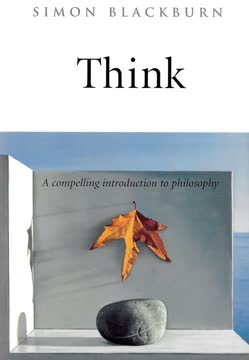つの重要なポイント
1. マルクスの哲学はヘーゲルと資本主義の批判から生まれた
マルクスはヘーゲルを地上に引き下ろすという考えに着目し、彼もまたヘーゲルの方法を用いて人間の現実の物質的および経済的状況を攻撃し始めた。
ヘーゲル的な根源。 マルクスの哲学的旅は、ヘーゲルの観念論の批判から始まった。ヘーゲルが歴史を精神の進歩と見なしたのに対し、マルクスはこの概念を逆転させ、物質的条件と経済関係が人間の意識と社会を形作ると主張した。この唯物論的アプローチが、マルクスの資本主義分析と社会変革のビジョンの基礎となった。
資本主義の批判。 パリでの社会主義思想との出会いやイングランドでの産業状況の観察を通じて、マルクスは資本主義に対する批判的な見解を発展させた。彼はそれを生産的である一方で、深刻な不平等と疎外を生み出すシステムと見なした。この批判は彼の生涯の仕事の核心を形成し、最終的には彼の大著『資本論』に結実した。
2. 唯物史観:経済的力が社会を形作る
物質的生活の生産様式が、社会的、政治的、知的生活過程を一般的に条件づける。人間の意識がその存在を決定するのではなく、逆にその社会的存在がその意識を決定する。
経済的基盤と上部構造。 マルクスは、社会の経済システム(「基盤」)がその社会的、政治的、イデオロギー的構造(「上部構造」)を決定すると主張した。これは、法律、政治、文化、さらには宗教までもが、基盤となる経済条件と生産関係によって形作られることを意味する。
歴史的唯物論。 マルクスによれば、歴史は生産様式(例:封建制、資本主義、社会主義)の間の矛盾によって進行する。これらの矛盾は階級闘争を引き起こし、最終的には社会革命を通じて社会を変革する。
- 生産様式の例:
- 原始共産制
- 奴隷制社会
- 封建制
- 資本主義
- 社会主義/共産主義
3. 疎外:資本主義は労働者を労働と人間性から疎外する
労働者は自分の生命を対象に投入し、それはもはや彼自身のものではなく対象のものとなる…労働者の労働が対象化されることは、彼の労働が対象となり、外部の存在となるだけでなく、それが彼の外部に存在し、独立し、疎外された自己充足的な力となり、彼が対象に貸した生命が彼に対して敵対的で疎外されたものとなることを意味する。
四つの疎外の形態。 マルクスは、資本主義が労働者を以下の四つの方法で疎外すると特定した:
- 労働の産物から
- 生産の行為から
- 種としての存在(人間性)から
- 他の労働者から
非人間化の影響。 資本主義の下では、マルクスは、労働が人間の創造性の充実した表現ではなく、外部から強制された活動になると主張した。労働者は商品に還元され、その労働は市場で売買される。この疎外は職場を超えて、人間の生活と関係のすべての側面に影響を及ぼす。
4. 剰余価値:資本主義の中心にある搾取
労働者が労働の使用価値ではなく交換価値しか得られないという事実は、彼が自分を養うのに十分な収入を得るために一日中働かなければならないことを意味する。例えば、12時間働く一方で、必要な食料、衣服、住居などの使用価値を生み出すのに6時間しかかからない。
労働価値説。 マルクスは古典経済学を基に、商品の価値はそれを生産するために必要な社会的に必要な労働時間によって決定されると主張した。しかし、彼はさらに進んで、資本主義における根本的な搾取を明らかにした。
剰余価値の抽出。 マルクスは、資本家が労働者に労働力(働く能力)に対してのみ賃金を支払い、彼らの労働が生み出す全価値から利益を得ると主張した。労働者が支払われる金額と彼らが生み出す価値の差が剰余価値であり、これは資本家によって利益として取り上げられる。この搾取が資本蓄積と階級不平等の源である。
- 例:
- 労働者の日給:$100
- 一日に生み出される価値:$200
- 抽出される剰余価値:$100
5. 階級闘争:歴史的変化の原動力
これまでのすべての社会の歴史は、階級闘争の歴史である。
二元的な階級構造。 マルクスは、社会を基本的に二つの主要な階級に分けた:
- ブルジョワジー:生産手段の所有者
- プロレタリアート:労働を売る労働者
歴史的弁証法。 マルクスによれば、階級闘争が歴史的変化のエンジンである。各生産様式はそれ自身の階級対立を生み出し、最終的には革命と新しい社会秩序の確立につながる。
プロレタリア革命。 マルクスは、資本主義の内在的な矛盾がその崩壊をもたらすと予測した。プロレタリアートは「失うものは鎖だけ」の普遍的な階級として、ブルジョワジーを打倒し、社会主義社会を確立し、最終的には共産主義に至ると考えた。
6. 共産主義:階級のない国家のない社会へのマルクスのビジョン
共産主義…それは人間と自然、人間と人間の間の対立の真の解決である。それは存在と本質、対象化と自己肯定、自由と必然性、個人と種の間の闘争の真の解決である。
私有財産の廃止。 マルクスの共産主義ビジョンの核心は、生産手段の共同所有であり、階級搾取の基盤を排除することであった。
人間性の変革。 マルクスは、共産主義が経済関係だけでなく人間の意識も変えると信じていた。資本主義の疎外と競争がなくなれば、人々は社会的存在としての潜在能力を最大限に発揮できるようになると考えた。
国家のない社会。 共産主義の最終段階では、マルクスは国家の「消滅」を想像した。階級対立が消滅し、社会が「各人の能力に応じて、各人に必要に応じて」という原則に基づいて組織されるようになる。
7. マルクスの持続的な関連性:不平等、グローバリゼーション、環境危機
その製品のための絶えず拡大する市場の必要性が、ブルジョワジーを地球全体に追い立てる。彼らはどこにでも巣を作り、どこにでも定住し、どこにでも関係を確立しなければならない。
持続する不平等。 マルクスの貧困化と革命の予測は実現していないが、資本主義の富の集中傾向に関する彼の洞察は依然として関連性がある。トマ・ピケティのような経済学者の仕事は、増大する不平等に新たな注目を集めている。
グローバリゼーション。 マルクスの資本主義の拡張主義的性質の分析は、世界市場の創造や生産の絶え間ない革新など、現代のグローバリゼーションの多くの側面を予見していた。
環境危機。 一部の現代の思想家は、資本主義の無限成長への駆動に対するマルクスの批判を利用して、特に気候変動に関する環境問題に取り組んでいる。「エコ社会主義者」は、資本主義を克服することが生態学的持続可能性を達成するために必要であると主張している。
- 持続的な関連性のある分野:
- 経済的不平等の批判
- 経済危機の分析
- グローバリゼーションの動態に関する洞察
- 資本主義に対する環境批判の基盤
最終更新日:
FAQ
What's "Marx: A Very Short Introduction" about?
- Overview: The book provides a concise introduction to the life, ideas, and influence of Karl Marx, written by philosopher Peter Singer.
- Purpose: It aims to make Marx's complex theories accessible to general readers, offering a clear explanation of his central ideas.
- Content: The book covers Marx's biography, his philosophical development, his economic theories, and the impact of his ideas on history and contemporary thought.
- Series Context: It is part of the "Very Short Introductions" series, which offers brief overviews of a wide range of subjects.
Why should I read "Marx: A Very Short Introduction"?
- Understanding Marx: The book provides a foundational understanding of Marx's ideas, which have significantly influenced political, economic, and social thought.
- Relevance: Marx's theories continue to be relevant in discussions about capitalism, socialism, and economic inequality.
- Clarity: Peter Singer presents Marx's complex ideas in a clear and accessible manner, making it suitable for readers new to Marxist theory.
- Contextual Insight: The book places Marx's ideas within the historical and philosophical context, enhancing comprehension of his impact.
What are the key takeaways of "Marx: A Very Short Introduction"?
- Materialist Conception of History: Marx's theory that economic forces drive historical change and shape society's structure.
- Alienation: The concept that under capitalism, workers are alienated from the products of their labor, leading to a loss of freedom and self-realization.
- Surplus Value: Marx's economic theory that capitalists profit by extracting surplus value from workers' labor.
- Revolution and Communism: Marx's belief in the eventual overthrow of capitalism by the proletariat, leading to a classless, communist society.
What is the materialist conception of history according to Marx?
- Economic Base: Marx argues that the economic structure of society (the base) determines its legal, political, and ideological superstructure.
- Productive Forces: The development of productive forces (technology, labor) drives historical change and societal evolution.
- Class Struggle: History is characterized by class struggles, which arise from conflicts between different economic classes.
- Inevitable Change: Marx believed that these economic forces would inevitably lead to the collapse of capitalism and the rise of communism.
How does Marx define alienation in "Marx: A Very Short Introduction"?
- Worker's Alienation: Workers are alienated from the products of their labor, which are owned and controlled by capitalists.
- Loss of Self: This alienation leads to a loss of self and a disconnection from one's own humanity and creativity.
- Social Relations: Alienation extends to social relations, where individuals see each other as competitors rather than collaborators.
- Resolution: Marx believed that communism would resolve alienation by abolishing private property and enabling collective ownership.
What is surplus value in Marx's economic theory?
- Definition: Surplus value is the difference between the value produced by labor and the wages paid to the laborer.
- Capitalist Profit: Capitalists extract surplus value from workers, which is the source of their profit.
- Labor Exploitation: This process is seen as exploitation, as workers do not receive the full value of their labor.
- Economic Critique: Surplus value is central to Marx's critique of capitalism, highlighting inherent inequalities in the system.
How does Peter Singer address Marx's relevance today?
- Contemporary Issues: Singer discusses how Marx's ideas remain relevant in addressing modern issues like economic inequality and globalization.
- Critique of Capitalism: Marx's critique of capitalism's tendency to concentrate wealth and power is still pertinent.
- Environmental Concerns: The book touches on how Marxist ideas can inform discussions on environmental sustainability and capitalism's impact on nature.
- Philosophical Insights: Marx's philosophical insights into human nature and freedom continue to influence contemporary thought.
What are the best quotes from "Marx: A Very Short Introduction" and what do they mean?
- "The weapon of criticism cannot, of course, supplant the criticism of weapons; material force must be overthrown by material force." This quote highlights Marx's belief in the necessity of revolutionary action to achieve societal change.
- "The philosophers have only interpreted the world in various ways; the point is, to change it." Engraved on Marx's tombstone, this quote emphasizes the importance of practical action over mere theoretical interpretation.
- "Communism is the riddle of history solved." This reflects Marx's view that communism would resolve the contradictions and conflicts inherent in capitalist societies.
How does Peter Singer explain Marx's concept of freedom?
- Beyond Liberal Freedom: Marx's concept of freedom goes beyond the liberal idea of non-interference, focusing on collective control over social and economic conditions.
- True Freedom: True freedom, for Marx, involves the ability to shape one's own life and society, free from economic constraints.
- Collective Action: Marx believed that collective action and planning are necessary to achieve true freedom for all.
- Critique of Capitalism: Capitalism, according to Marx, limits freedom by subjecting individuals to the impersonal forces of the market.
What role does the proletariat play in Marx's theory?
- Revolutionary Class: The proletariat, or working class, is seen as the revolutionary class that will overthrow capitalism.
- Universal Sufferings: Marx believed the proletariat's universal sufferings would drive them to seek a complete transformation of society.
- Agent of Change: The proletariat is the agent of change, realizing the potential for human freedom and ending alienation.
- Philosophical Weapon: Marx saw the proletariat as the material force that would realize the philosophical ideals of freedom and equality.
How does "Marx: A Very Short Introduction" address Marx's predictions about capitalism?
- Predictions: Marx predicted that capitalism would lead to increasing inequality, falling rates of profit, and eventual collapse.
- Critique of Predictions: Singer discusses how many of Marx's predictions have not come to pass, particularly in industrialized nations.
- Relevance of Critique: Despite inaccuracies, Marx's critique of capitalism's tendencies remains relevant in discussions of economic inequality.
- Philosophical Legacy: Marx's philosophical insights continue to influence debates on freedom, human nature, and societal change.
How does Peter Singer view Marx's impact on modern thought?
- Influence on Disciplines: Marx's ideas have profoundly influenced history, sociology, philosophy, and the arts.
- Enduring Legacy: Marx's critique of capitalism and his vision of a classless society continue to inspire political movements and academic discourse.
- Complex Legacy: Singer acknowledges the complexity of Marx's legacy, including both the positive and negative outcomes of Marxist-inspired regimes.
- Philosophical Contributions: Marx's contributions to understanding human freedom and societal structures remain significant in contemporary thought.
レビュー
本書『マルクス: 非常に短い入門』は賛否両論を受けている。読者はマルクスの思想と伝記の簡潔な概要を評価し、シンガーの明快な文章を称賛している。しかし、シンガーのマルクスの経済予測に対する軽視的な態度や、マルクス主義の解釈に対して批判もある。この本はマルクスの哲学を理解するための良い出発点と見なされているが、シンガーの分析には偏りがある可能性があると読者は指摘している。マルクス主義の主要な概念を把握するのに役立つと感じる人もいれば、深みが欠けており、マルクスの思想を誤って伝えていると主張する人もいる。
Very Short Introductions Series Series

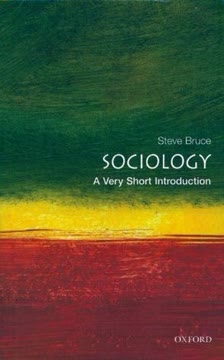
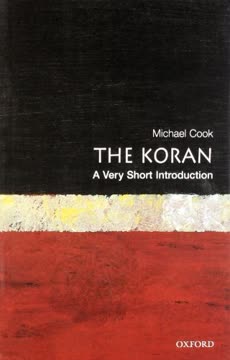
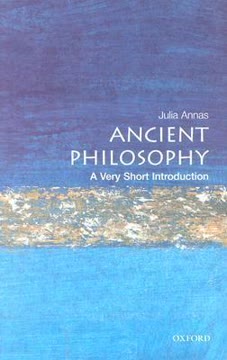
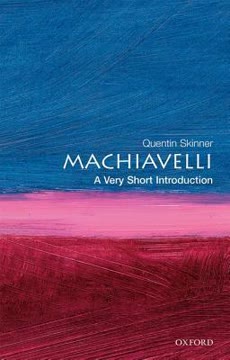


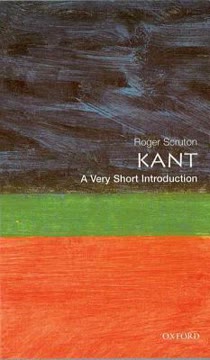
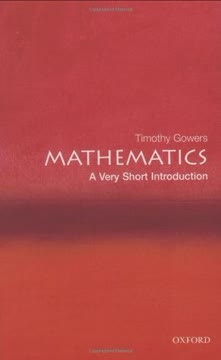
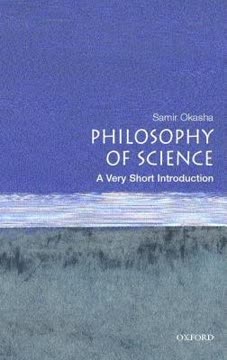
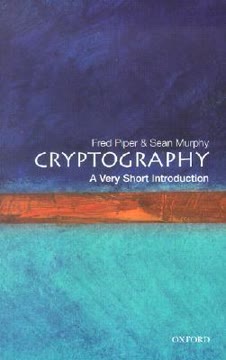
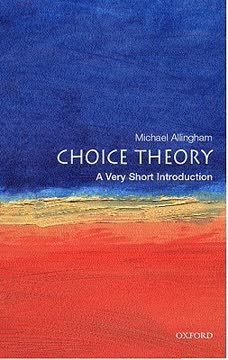
Similar Books
